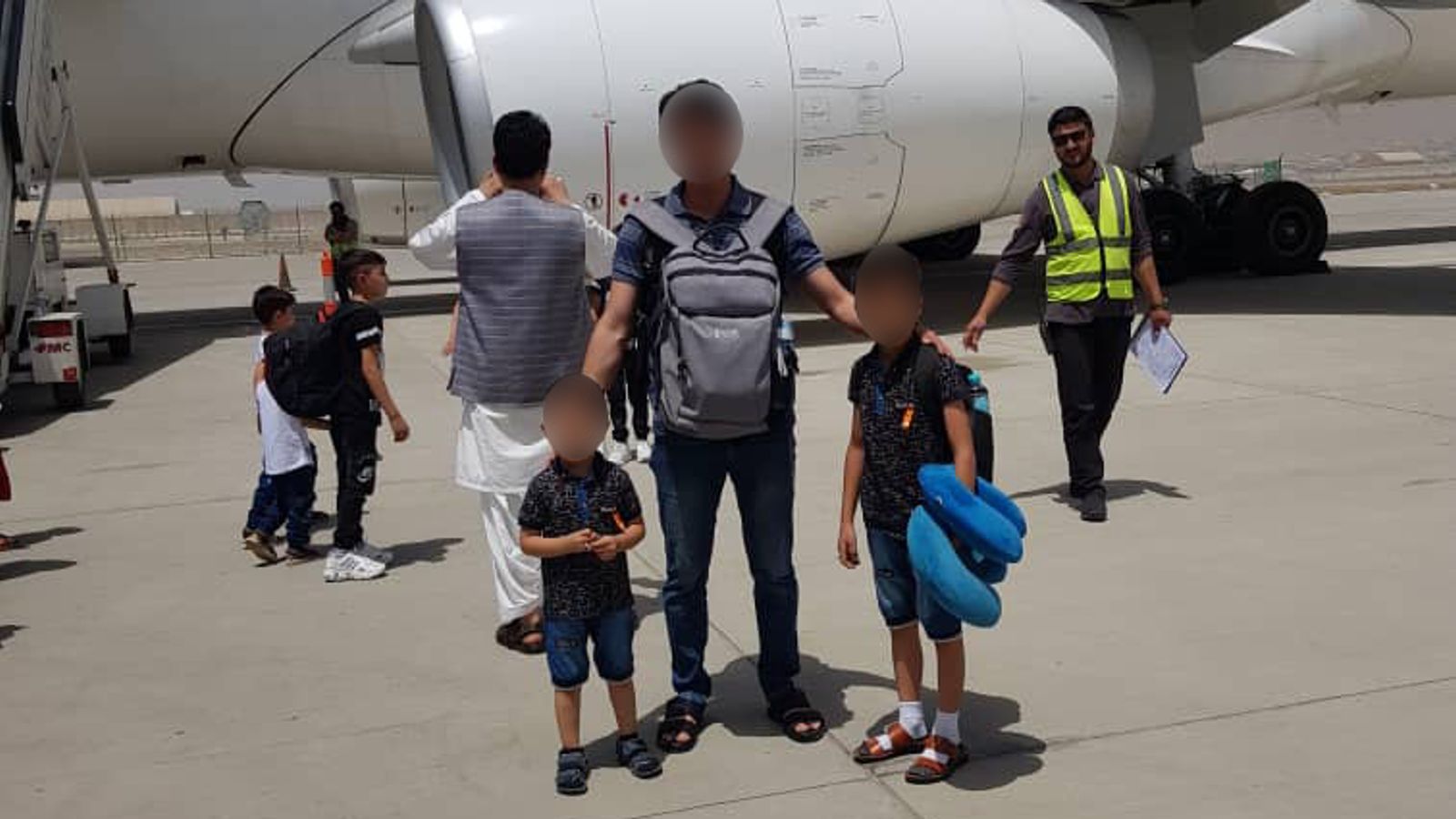There are fears that thousands of refugees who have recently arrived from Afghanistan could end up being forced to stay in hotels indefinitely.
The leader of one local authority who is welcoming refugees to his area said he believes all councils should be forced to house people, rather than being allowed to refuse.
The Home Office says so far more than 100 councils have agreed to house Afghans. However, the rest of the 343 local authorities in England are yet to commit.
Please use Chrome browser for a more accessible video player
Charities say they are being contacted by people who have finished their period of quarantine but have had no further information about where they will be going next.
Fahim Zazai has received hundreds of donations at the Afghan community and welfare centre he runs in Walsall. They have taken a delivery of essential items to a hotel in Birmingham and are trying to get access to refugees in a hotel in Wolverhampton.
“We receive phone calls and contacts from these people, they want to know when they will be housed,” he says.
“Some of them still in hotels after they spent their 11 days of quarantine. They don’t know when they’re going to be housed and where so they just don’t know what happens next for them. There’s a lot of uncertainty with housing issues.
“They have children obviously who need to start schooling and the rest of the support they need.”
In Coventry the council has pledged to house 150 refugees who are arriving from Afghanistan.
Council leader George Duggins says he and other leaders in the West Midlands are prepared to try to force other local authorities to welcome refugees.
“We will seek judicial review for the government to ensure that the dispersal programme and dispersal process is fairer than it actually is,” he said.
“We don’t believe and I don’t believe for one minute that people should be allowed to opt out as they have been able to do.
“We’ve talked about mandation, now the government doesn’t want to go down that particular line, but I think they’ve got to.
“And I say to colleagues across the country, please step up to the plate. This is a national issue, it’s a national crisis. We should be all in this together and we’re simply not.”
He criticises a lack of communication between government and councils, citing an example of the lack of information councils are given.
“66 people from Afghanistan have arrived in Coventry and it’s a Home Office programme – Home Office have billeted them – and we didn’t know about it,” he says.
A Home Office spokesperson told Sky News: “So far over 100 councils have agreed to house Afghans and we have made £5 million to support in housing costs.
“We are grateful to all local authorities who currently support and would encourage all local authorities to come forward and offer further assistance to these vulnerable people.
“Dedicated civil servants continue to work round the clock with local authorities to ensure those arriving in the UK have the accommodation and assistance they deserve.”
Ali – not his real name – is a father of three who worked as an academic for the British Council in Afghanistan.
He counts his family among the lucky ones. After 20 days in hotels they have now been moved into temporary accommodation in the West Midlands.
He has a photo on his phone of him and his sons, aged 10 and four, on the tarmac at Kabul airport preparing to leave – he’s waiting to hear where they’ll be able to go to school in the UK.
“Suddenly you leave them all: your homeland, your family, your friends, your relatives, I could not believe we had to leave but we had to do that in order to save our lives, in order to do something not only for me, for my children,” he said.
“Definitely if we were there we would be assassinated because we were accused and blamed as British spies since we were working for British projects. That’s why we had to leave there as soon as possible.”
Follow the Daily podcast on Apple Podcasts, Google Podcasts, Spotify, Spreaker.
In another photo his four-month-old daughter is smiling in the hotel room where they spent their quarantine on arrival.
“I’m optimistic about their future,” he says of his children.






















